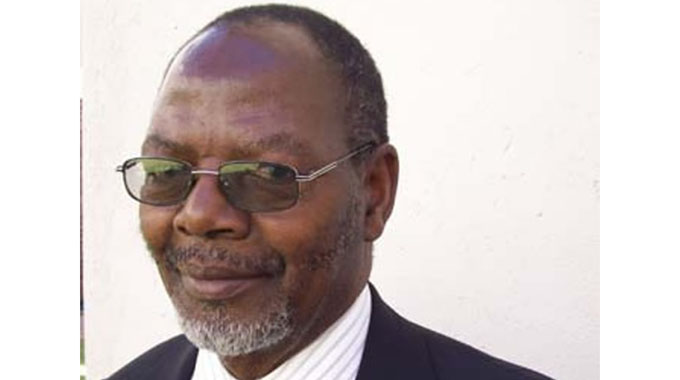Role of gods, chief in the African story

Elliot Ziwira At the Bookstore
Collective memory has it that gods are central to the African story as they could be consulted in times of strife through their oracles.
The chief in the traditional milieu could speak directly with the spirits, for he was the custodian of societal mores and values.
Vaughan (2003:14) notes that: “As the link between the supernatural world of the ancestors and the temporal existence of the present, the kgosi (chief) had extensive religious powers that generated fear, respect, and obeisance from his subjects”.
The chief was “the custodian of the people’s cherished tradition and the link between the community and the ancestors” (ibid), whom he communicated with through the land, their abode.
Thus, he was an embodiment of community aspirations and values. He was also the custodian of the land and all that it stood for on behalf of both his people and the ancestors.
In Elechi Amadi’s “The Great Ponds” (1969), Olumba informs his son Ikechi of the significance of gods and chiefs in the African story when he writes: “Never play with the gods my son. They are powerful and should be respected.
“I would rather face a whole village in battle than have the weakest of the gods after me. At times I wish I were a dibia, for then I would be able to see the spirits myself, know their desires and minister to them promptly.”
In the African’s world view, therefore, shrines were crucial in the spiritual connection between the dead and the living, and each man, each family or community lived in communion with the gods. There were gods of war, gods of rains and good harvest, gods of fairness and justice, gods of the land and gods of protection during times of strife.
As has been alluded to earlier on, the ritual import of the chief or king across Africa was crucial in the success of his people, because he interceded between the living and the ancestors.
In the book “The Mutasa Manyika Dynasty: 1695-2000” (2015), published by Mutapa Publishing House, Aeneas Chigwedere taps into the rich history of the African peoples which situates the chief as the link between the living and the dead. He does so through tracing the history of the Yoruba of Nigeria, the Nilotes of Sudan, Uganda’s Ankole, the Bemba of Zambia and Mutasa’s Manhikaland in Zimbabwe.
About the Yoruba, Chigwedere reveals: “Everywhere, the Sacred Chief was held in great respect as the possessor of ritual as well as political power. His person was regarded as sacred and as embodying the succession through the preceding chiefs from Oduduwa, the founder of the Yoruba people. He was never seen after installation, communication with him being through a screen and he appeared in public only with his face heavily veiled with beads”.
From Nigeria, he captures the ritualistic nature of the land and the Reth (king or chief) to the Nilotic of Sudan:
“The Reth is considered to have some mystic connection with the world of nature, and the state of his health has an effect on the fertility of the land, on the rains, the harvests and on the general material and spiritual welfare of the people. If the Reth becomes weak the people suffer and he must be killed”.
It can be deduced from the above that the king and the kingdom are inseparable, as his happiness and fitness determined the productivity of the land as well as the economic activities of his people. The Reth’s weakness; physically or otherwise, could lead to suffering and invasion of the chiefdom.
To the Ankole of Uganda: “Power, both physical and spiritual, was the inherent quality of kingship. And when the physical powers of the king waned through approaching age, these kingly powers were believed to wane with them. No king, therefore, was permitted to age or weaken”.
If age were to catch up with the king or chief, thus weakening him, he would be strangled to death to save the kingdom. The prosperity of the kingdom, therefore, pivoted on the physical and spiritual well-being of the king/chief.
According to the custom of the Bemba people of Zambia: “His (Bemba Chief) ill health or death, his pleasure or displeasure, his blessings or curses, can affect the prosperity of the people, and even his sex life reacts on the stage of the community.”
Chigwedere adds that, “if he was no longer able to deal sexually with twenty or thirty-year-old women, he was deemed unsuitable to remain as chief”, because his senility and sexual impotence could not be allowed to affect a whole community of men who still wanted to grow their families.
The concept of Divine Monarchy, as Chigwedere posits, was also practised in Zimbabwe, as is illuminated in the following: “Among the Barozvi it was customary to strangle the King when he became old or infirm lest his physical decline reacts adversely on the tribal welfare. Similarly, among the Manyika and others, the physical fitness of the tribal head was regarded as essential to the welfare of the community”.
The issue of Divine Monarchy, as Chigwedere (2015) outlines, is of interest to the view of heritage at a number of levels. Firstly, it can be analysed on the backdrop of the rise of colonialism as it robbed Africans of their shrines; the abode of the ancestors (Lan, 1985) through imposition of Christianity, and the Christian God.
Colonialism created human deities, starting from the imperialistic racist Cecil John Rhodes and his cronies, who believed that Africa was there for the taking as it was inhabited by “half-devils” and “half-children” (Rudyard Kipling).
This warped thinking reprised itself in the illusion called Rhodesia — a paradise for the “supreme race” away from the Empire. This illusion, evident in Ian Smith’s belief that there would never be majority rule in “a thousand years” in Rhodesia, is what creates problems in the nation of Zimbabwe’s desire to move forward as a sovereign state.
These gods that have replaced African deities of yore, as outlined above, have become too individualistic to be relied on, for their illusions impede collective ideological vision required in changing outcomes for the common good.
A return to the determination of the senility or unsuitability of a chief or king to function as a conduit between the living and the dead for continued prosperity of the community will suffice here.
Chigwedere argues that because of lack of objectivity, in the absence of “a caucus of Chiefdom elders to debate whether the Chief was getting senile enough or disabled enough or infirm enough”, to be strangled, the problem of interested parties arose.
In such instances strangulation would be determined by selfishness, especially instigated by outsiders, thus robbing progenies of their right to heritage, under the guise of fumigating them against a possible scourge.
It is discernible here that where heritage is concerned, any dubious attempt at regime change should be scrutinised against the backdrop of what constitutes citizenship, particularly where land ownership is concerned, because, as Smith (1998) cited in Mooka (2015: 110) points out: “While nationalism puts the nation at the centre of its concerns and seeks to promote national autonomy, national unity and national identity, globalisation threatens the nation’s integrity.”
The greatest threat to nationhood as enshrined in land as a heritage, does not only come from unrepentant white gods hanging onto the illusion of Rhodesia with their anthem “Rhodesians Never Die” popularised by Clem Tholet and Andy Dillon in song, but emerging black elites in the post-colonial nation state in Africa, whose materialistic, individualistic, selfish and avaricious inclinations are no better than the colonial oppressor they replaced.
There is need to create interfaces for the common good by collectively reclaiming the heritage for long in the hands of yesteryear conquerors and plunderers playing victim today.
Chigwedere (2014:22) makes the observation that the chief’s installation involved entrusting his fathers’ country to him by linking him to the soil. At his installation, he was handed over “a kilogramme or two of the soil picked from his chiefdom”, so that he would be able to “defend it and look after it well” with the help of his ancestors.
Zhuwarara (2001:13) points out that the land is crucial to the physical and metaphysical being of Africans, as it “functioned as a geographical and metaphysical world at whose centre was entrenched the roots”.
For a fruitful and glorious future, there is need to infuse past and present memories. To Africans losing land is the same as losing spiritual heritage. The land offers spiritual connectedness between the living and the dead, above offering water, food and ontological security (Skey, 2011).
To black people being divested of land equates to death because it means losing loved ones’ graves. It also means loss of community and continuity (Palmer, 1977). Thus, colonialism killed Africans; physically, spiritually and morally.









Comments